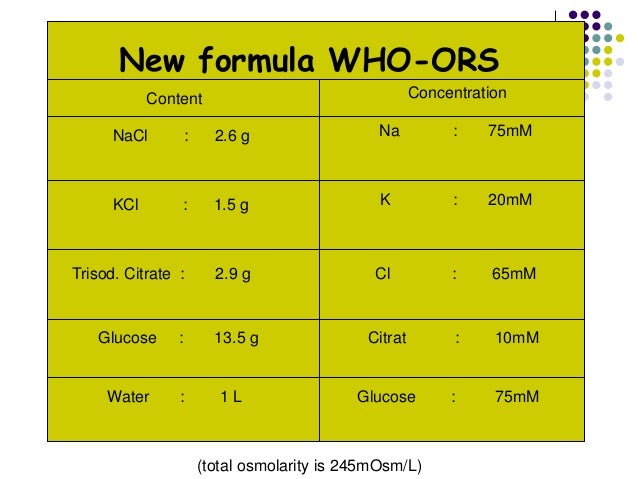Dear Sasha,
I have to say that I am bemused by all this. Drinking the mixture in any large amount would seem likely only to make you fat from the sugar and go to the loo a lot.
It seems that a litre of saline IV is given over anything from 2 to 8 hours. But if you drink a litre when you are not seriously thirsty you will pee most of it out within an hour. So the IV route is not even faster. So there is no sudden stimulus of baroreceptors or something that you do not get just by drinking. That makes it seem to me that the water has nothing to do with it. Maybe it is just a matter of increased salt intake, which you can do by putting more on food.
It sounds as if it does need proper investigation with adequate controls. I certainly would not want people having indwelling central lines.
I wish I understood enough of the physiology to have a sensible conversation with you about this! But I will have a go.
I'm aware that there's a reflex that's supposed to help with OI if you just take a massive drink of cold water (which I've tried, totally ineffective in my case). But the ORS intervention, like the saline, seems to be to do with trying to jack up our blood volume (which is known to be generally low in PWME, though I don't know if that's so in all PWME+OI cases). Presumably that's because we don't have good enough ANS control to stop our blood heading to our boots so if there's more blood volume in the first place, at least more of it will stay in our brains and hearts on upright posture (?).
A lot of PWME+OI have observed improvement in their OI with IV saline and it seems to be a pretty common treatment for PWME+OI who see US specialists. I've tried putting loads of salt on food and drinking electrolyte solutions and have found them to be completely ineffective, and do indeed pee the water straight out again - but they didn't have glucose in them, like the solution that Dr Medow is trying.
I don't think that one would need to drink the whole litre of ORS in one go (though I'd be interested to know what Dr Medow is having his patients do). Maybe one could drink it throughout the day for the best benefit. But I find that I am often thirsty, especially on waking - I suspect a lot of OI patients are. I think it's to do with the (anti-diuretic?) hormone that stops you needing to pee in the night not being produced properly, among other things.
It's interesting that Dr Medow says:
Using noninvasive measurements of heart rate and blood pressure by Finapres and oscillometry, cardiac output and peripheral arterial resistance by inert gas rebreathing, cerebral blood flow velocity by transcranial Doppler ultrasound, and regional fluid shifts by impedance and venous occlusion plethysmography, we have acquired preliminary data in ME/CFS patients with OI demonstrating superior restoration of orthostatic tolerance with ORS.
and he's doing what looks like a well-designed randomised trial to look at it (open-label but objective measures - though I wish N was bigger, but presumably he's done a power calculation, and the within-patients control will help).
As a patient waiting decades for clinical trials to produce something I can use, I sometimes take the approach of trying things that are likely to be harmless but seem promising (getting my doctor's OK first, usually) as a short-cut to bypass both my biomedical ignorance and the long wait for the science to deliver. This looks like a good candidate for this approach (I'm seeing a cardiologist soon and I'd like some anecdata for him, as well as his advice about trying the full treatment safely). So for now I'm trying a little N=1 study of my own on a low dose - 2 doses of 200ml of ORS spaced out in time - daily for a few days to see if I notice a pick-up. I did do better yesterday but I want to give it a few days in case that was a fluke or me just pushing things as a result of expectancy (which I won't be able to keep up, if that was the case, due to the PEM that would result). I keep records of when I lie down and for how long so I'll have reasonably good data.
Last edited:

